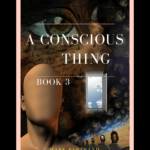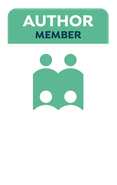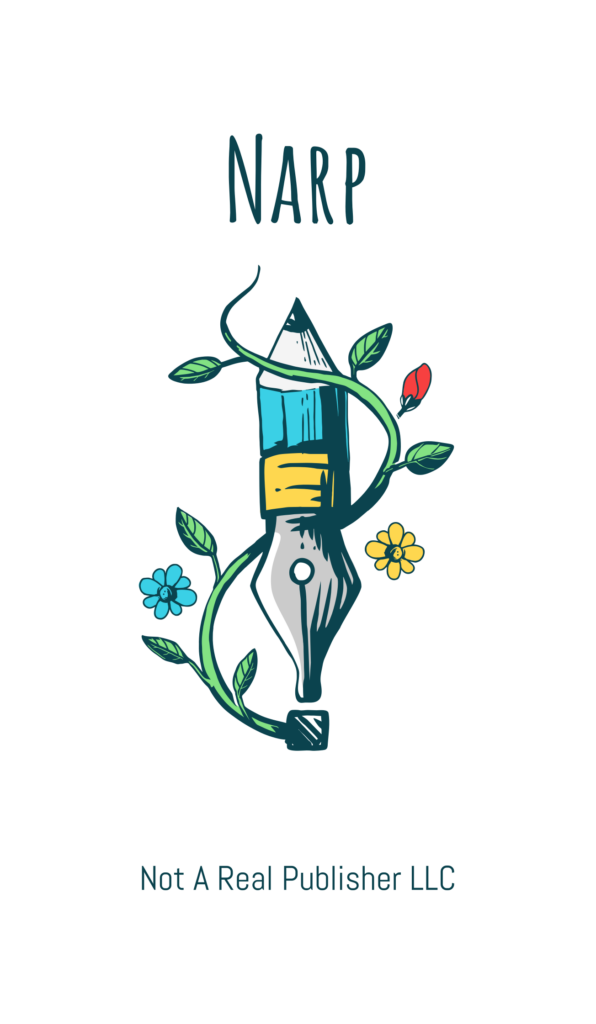A Conscious Thing
By Mark Bertrand
Q: Who is your favorite writer?
Q: What made you choose self-publishing?
Q: I read that your books are based on true stories. Where do you find your true stories?
Q: Do you worry perhaps some Buddhists might think you are making light of their philosophy by turning a sutra into a fictional story?
Q: Are your books religious?
Q: Who is your favorite writer?
A: Mike White is without a doubt my favorite. He’s had a lot of successful movies and television series. His style captures the Buddhist philosophy without pushing Buddhism in the stories. His latest series, White Lotus made me binge watch which I never binge-watch. Another one of his I think is great was the series, Enlightened and the movie Orange County. Nacho Libre — I shouldn’t forget to mention Nacho Libre.
My favorite author is Geri Larkin. She went from being a highly paid business executive and consultant to a Buddhist monk running an abbey in downtown Detroit. Her books are a comedy of real-life adventures with a Buddhist backdrop. My favorite of her books, called The Chocolate Cake Sutra, is at the top of my must-read suggestions for anyone interested in learning how to live as a Buddhist in the USA.
Q: What made you choose self-publishing?
A: Choosing is freedom and I love the freedom to choose. I also enjoy being self-employed and in the years when I was employed made a terrible employee. I felt sorry for the managers and business owners who had to work with me. Creative people have historically proven to be difficult to cage into a regimen of management procedures. It sucks to work for anyone. Even the coolest boss in the world is still an ass. I prefer to work with people and self-publishing provides an opportunity for a lot of people with very different skills to work together.
Independent publishing is taking over and a recent article shows independent publishers are outperforming the top five publishers combined. It’s the evolution of humanity as it moves away from the slavery of people to the independence of the self to fully awaken to the beauty of each person and their own experience. How philosophical does that sound? And though it may sound like butterflies and flower blossoms with the distant sound of wind chimes, it is nevertheless what everyone wants to have. Freedom to fully express themselves without causing physical harm to others or our planets.
Q: I read that your books are based on true stories. Where do you find your true stories?
A: They come from the Buddha’s Sutras. That is sort of a broad credit for the source, but if someone wanted the Wikipedia definition of a Sutra, it would be a few pages of backward and forwards history of the origination. I guess it would be more sophisticated, but necessary to say a sutra (Sanskrit for “thread”) is a written work that defines belief systems of Hinduism, Jainism, and Buddhism which is understood to accurately preserve important teachings of the respective faiths. The sutra is a guide for followers on the path from ignorance and entrapment in the endless cycle of rebirth and death (samsara) toward spiritual liberation. Sorry for being a bore, but I suppose we all have to understand the basics first.
But my books and shorts are based on the Buddist sutras, which contain some fairly long and I think generally hard to understand writings. Probably hard to follow for many people because they were written three thousand years ago. We’ve come a long way with language and communication since then. Not the least of which, similar to all major religions translations from the original into dozens of other languages, combined with fires, wars, and politics we all have to accept the fallacy of ancient philosophy. With all of that said, I should answer your question now.
Contained in many sutras are stories about people and places who personalized and exemplified the intention of the teaching. For example the story of a wealthy man who spoiled his children with every pleasure available. When he realized enlightenment he struggled to free his children from their attachments to pleasures from wealth. When he eventually devised a plan to trick them into realizing their suffering, he used a different method on each of the four children. It illustrates how the Buddhist teachings can be flexible to reach all people and not a rigid doctrine requiring one and only one way to liberation.
My books go into the between the lines of those stories. Such as how did the wealthy man get wealthy and how did he discover his own enlightenment. Then the children too are worth investigating. Who is the mother and which was the firstborn? What lavish lifestyles did they each love and indulge in? Why were they so hard to convince to follow the path to Nirvana? By writing these adventures I can discover a lot of ancient secrets around witchcraft (Yoga) and magic (Alchemy) and wrap all of that history together in a space adventure taking place in the distant future.
It’s literary fiction, my genre — because my books aren’t SciFi, Magical Realism, Fantasy, Historical Fiction, or any one genre but a cross of many genres and of course a little bit of erotica here and there. Tantra has played a major role in every culture and philosophy since humans first stood and took notice of the instinctual desire to propagate. It didn’t hurt that sex causes a cerebral, often intoxicating high and it feels amazing too. Put it all together and my imagination writes adventures based on true stories from Buddhist Sutras.
Think Kwai Chang Caine (Grasshopper) from the Kung Fu series meets Westworld and Raised by Wolves.
Q: Do you worry perhaps some Buddhists might think you are making light of their philosophy by turning a sutra into a fictional story?
A: It’s hard to make everyone comfortable and these days we have to accept that some people will choose to be offended no matter what someone says. I don’t want to offend anybody, and I hope no one will be. That’s not my intention. I’m hoping to be a beacon or a conduit of sorts.
There was a mystic called Padmasambhāva who taught there is merit from looking at statues of the Buddha. Merit is a great wealth and benefit for Buddhists. It is merit that burns up bad karma or negative actions for those who don’t know what karma is. Because karma is poorly understood in society. Anyway, if looking at a statue of Buddha earns merit it results from the mind. If you follow the meaning a little deeper it’s an obvious result. When you look at the statue your mind recalls that’s the Buddha. All the thinking stops and for a millisecond all your mind holds is the thought of Buddha. That’s merit.
Perhaps the thought runs longer and the person looking at the Buddha asks a silent question, why are the Buddha’s eyes always closed? Or maybe the person knows why but seeing the statue with its eyes closed recalls, statues of Buddha are made with his eyes closed to symbolize he found the answers by looking inward. Also, in either case, the person is earning merit — burning up negative energy they have earned from their life or a past life.
My intention for writing fictional adventures based on true stories from the sutras is to earn merit for myself as well as for those who read.
Q: Are your books religious?
No. Not at all. The people are Buddhists and the civilization struggles to follow Buddhist law and traditions. But the books are not lectures or teaching Buddhism. Sort of like a romance book where the main character falls for a football player. There’s going to be a lot of football talk and conversation around winning and losing games. But the book is about the unfolding romance and the heartthrob tensions between the characters. Only in my book, there’s no romance, of course, and the civilization is a Buddhist culture, not the NFL.
Return to Media Kit



